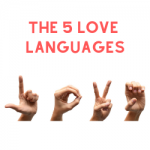 Awareness and Relationships
Awareness and Relationships
One of the big learnings in my life has been that the more aware I am of how others REALLY are, the better I can be in relationship with them.
People usually EXPECT other people to think and behave like they themselves do, and are surprised/disappointed/angry/frustrated when the other does not.
I have been in relationship with my “romantic” partner for over 30 years and the more I became aware of how we operated differently, the better outcomes I could get when living with him.
And while I am getting better at being aware just through observing, over the years it has helped me to learn some of the personality type models out there, both in my private relationships, and also in my professional ones!
Early Learnings
My husband loves my cooking, but I was always confused at why he didn’t like stews, etc, and ate his meals one section at a time (i.e. potatoes, then peas, then meat), while I loved stews, and always had to have a bit of everything together on my fork when the food was seperate on the plate. And then I studied Ayurveda and realised that the seperate food items thing was a Pitta Dosha trait, and I stopped resisting it.
Over the years I would often get frustrated when he would say “we have already talked about that”, when I felt we hadn’t, which would lead to accusations of “nagging” when I kept trying to bring up a topic. And then I learned about Meta Programs in NLP and discovered that he generally operates at big picture level and I need detail to move forward. (Meta-programs are mental shortcuts that direct your decisions, behaviours, actions and interactions with others.) So, for instance, if I tell him I think the car needs a service and he says “ok”, he thinks that is enough discussion, where I need to get into the detail of what day could he come with me to drive me home after we drop the car off, and then take me to pick it up after the service is done, and do we have enough in the bank at the moment to pay for it, or will we have to use the credit card… So I have to remind him that I need the detail, and then we only require one conversation to “talk about” something!
(I also discovered that he is visual, which is why he hates clutter, where I am more auditory – I am irritated by certain types of noises and hate too much noise, but don’t care about “mess” so much.)
 Love Languages
Love Languages
Recently I have been in a number of conversations where people feel they have not been connecting with others and I have asked them what their Love Language was, and they didn’t know what I was talking about! This is another area where learning about how my partner and I operated differently really opened up some opportunities for closeness.
Gary Chapman wrote a book in the 1990s arising from his practice as a counsellor, and according to him there are 5 main ways to express and experience love between romantic partners, but I think the languages can be important for all types of relationships. The Five Love Languages are:
- Receiving Gifts
- Quality Time
- Words of Affirmation/praise
- Acts of Service (devotion) and
- Physical Touch.
Both of our primary languages was Touch, but when things aren’t going well, or there is past trauma, or we have different ways of expressing love through touch (he was a bit too rough and tumble for me – I am not a puppy), you need to fall back to your secondary languages.
My partner’s secondary Love Language is Quality Time and mine is Words of Affirmation.
So he feels loved if I spend time with him – even if it is just sitting beside him on the couch watching tv. For me to feel loved he needs to tell me I am doing a good job, or I am a good person, etc. Me telling him he is doing a good job doesn’t make him feel loved, even if, because it is my love language, I think it should.
I would encourage you to look into the 5 Love Languages, and there is a simple test I found that you can use for yourself, your clients and your family and friends to determine your/their love language:
https://m2mbatesville.files.wordpress.com/2014/10/lovelanguagetest.pdf
If you speak English to a Frenchman can you connect meaningfully? It is the same when you are “speaking” different love languages. I challenge you to have a play with this and see if it creates more in your lives and relationships.
Karen Howard is a Counsellor, Coach, and Energetic Body Worker specialising in recovery from childhood trauma. She works with individuals and groups online and in person – email alwaysshinebrightly@gmail.com to connect (and don’t forget the words of affirmation).

Leave A Comment